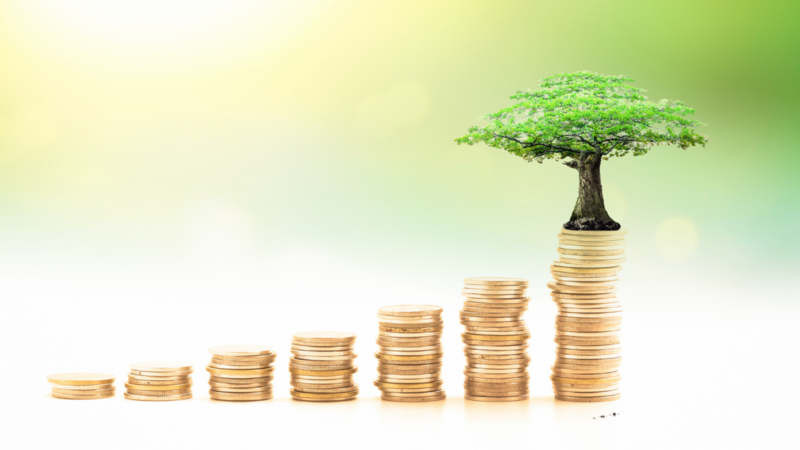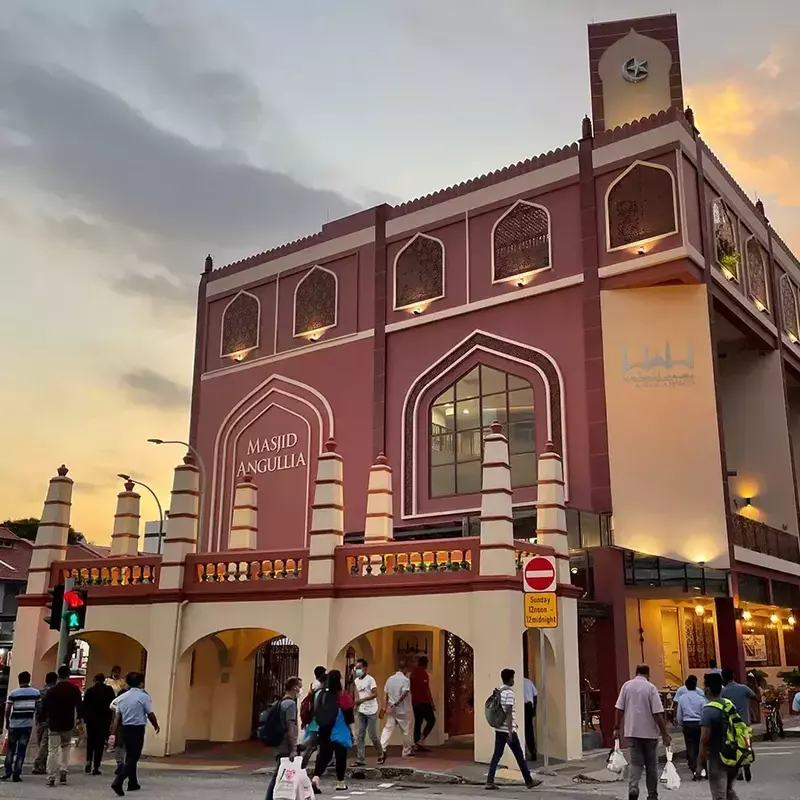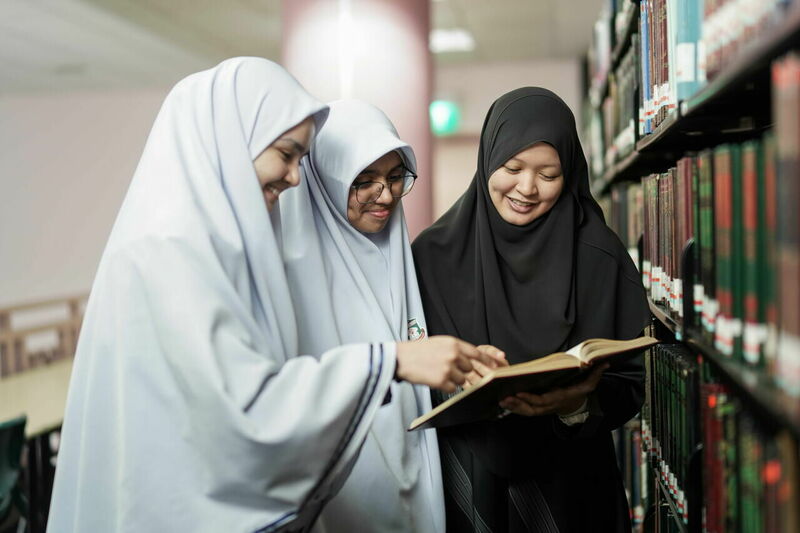Understanding wakaf: How you, too, can contribute
What if your charitable giving could continue to help others even after you are gone? Wakaf is a powerful way of giving in Islam. Imagine your single act of charity continuing to help others for years, decades, and even centuries to come. It's like planting a seed that grows into a tree, providing shade and fruits for generations to come. When you give wakaf, your contribution keeps benefitting the community while you continue earning rewards from Allah, even after you've passed on.
Many people think wakaf is only about donating big things like land or buildings. But that's not true! Every Muslim can be part of this beautiful tradition.
Wakaf’s true essence lies in its accessibility to all Muslims, welcoming contributions both large and small in the pursuit of lasting community benefit and sadaqah jaariyah (ongoing charity) that earns eternal reward.

Debunking misconceptions: Is wakaf only for the wealthy?
The assumption that wakaf requires substantial property or large wealth stops many from participating in this act, when Islam actually intended for it to be widely accessible. Islam encourages all believers to engage in sadaqah jaariyah, regardless of how much they can give.
The Prophet Muhammad s.a.w. said:
إِذَا مَاتَ الإِنْسَانُ انْقَطَعَ عَنْهُ عَمَلُهُ إِلاَّ مِنْ ثَلاَثَةٍ إِلاَّ مِنْ صَدَقَةٍ جَارِيَةٍ أَوْ عِلْمٍ يُنْتَفَعُ بِهِ أَوْ وَلَدٍ صَالِحٍ يَدْعُو لَهُ
"When a person dies, all their deeds end except three: a continuing charity, beneficial knowledge, and a righteous child who prays for them."
(Sahih Muslim)
Wakaf is one of the most impactful forms of sadaqah jaariyah, and with just a small, recurring contribution, anyone can be part of it.
Cash wakaf: Making wakaf accessible
The concept of cash wakaf offers a paradigm shift. It allows individuals, especially those with modest means, to contribute regularly - such as $30 (or less, depending on what you can comfortably give) a month, or even a one-time gift of $60 towards a collective wakaf fund. Over time, these contributions add up, helping the community to build and strengthen educational organisations, religious institutions and welfare programs.
Cash wakaf not only makes giving possible for everyone, but also creates a sense of ownership and shared responsibility among community members. It aligns with the Quranic principle:
فَمَن يَعۡمَلۡ مِثۡقَالَ ذَرَّةٍ خَيْرًا يَرَهُۥ
"So whoever does an atom’s weight of good will see it."
(Surah Az-Zalzalah, 99:7)
No contribution is too small in the sight of Allah s.w.t. when it stems from sincerity and goodwill.
Islamic scholarly perspectives: Legitimacy of cash wakaf
Traditional wakaf typically involved fixed assets like land or buildings. However, contemporary scholars have affirmed the validity of cash wakaf, especially when it is professionally managed and used to generate long-term benefits. Majlis Ugama Islam Singapura (MUIS) and many international fatwa councils support the use of cash wakaf for sustainable investments that align with Shariah principles.
This evolution reflects the Maqasid al-Shariah (objectives of Islamic law), which emphasises the preservation of faith, life, intellect, lineage and property. If small financial contributions serve to uphold these objectives, they are not just permissible but highly encouraged.
Collective impact: Many drops make an ocean

Every ocean began with a single drop. In the essence of cash wakaf, each contribution – no matter its size – adds to the collective strength of a community. While individually we might not build a mosque, together we can create lasting institutions that serve generations through wakaf.
The Prophet s.a.w. said:
وَأَنَّ أَحَبَّ الأَعْمَالِ أَدْوَمُهَا إِلَى اللَّهِ، وَإِنْ قَلَّ
"The most beloved deed to Allah is the most regular and constant, even if it is small."
(Sahih Muslim)
This hadith beautifully illustrates how even modest, consistent donations can yield tremendous impact, especially when multiplied by collective participation.
Real-life examples: Everyone can participate
Today, we see inspiring examples of students contributing a portion from their allowance, young professionals dedicating a portion of their monthly income, and retirees setting aside part of their savings for wakaf causes. Their contributions, though individually small, are the seeds of immense community development.

Take the example of the Wakaf Masyarakat Singapura (WMS) initiative, where individuals contribute as little as $30 a month to support the long-term needs of the Muslim community. Through this collective effort, all contributions form a wakaf fund that is continuously invested according to Shariah principles. While the original wakaf amount remains preserved, only the profits from these investments are distributed to the beneficiaries. This benefits three leading causes, including future land lease renewals for mosques and madrasahs, professionalising the Asatizah sector, supporting the Singapore College for Islamic Studies (SCIS), and uplifting programs for the community in times of crisis.
The spiritual and communal rewards of wakaf
Beyond material impact, contributing to wakaf cultivates taqwa (God-consciousness), compassion, and a deep sense of belonging. It strengthens the bonds within the Muslim community, bringing people from all walks of life together in the shared pursuit of seeking barakah (blessings).
Allah s.w.t. reminds us:
مَّثَلُ ٱلَّذِينَ يُنفِقُونَ أَمْوَٰلَهُمْ فِى سَبِيلِ ٱللَّهِ كَمَثَلِ حَبَّةٍ أَنۢبَتَتْ سَبْعَ سَنَابِلَ فِى كُلِّ سُنۢبُلَةٍ مِّا۟ئَةُ حَبَّةٍ ۗ وَٱللَّهُ يُضَـٰعِفُ لِمَن يَشَآءُ ۗ وَٱللَّهُ وَٰسِعٌ عَلِيمٌ
"The example of those who spend their wealth in the Way of Allah is like that of a grain which grows seven spikes, in each spike is a hundred grains. And Allah multiplies His reward for whom He wills."
(Surah Al-Baqarah, 2:261)
Imagine the multiplied reward, both in this life and beyond, when that small contribution helps educate a child, support a needy family, or sustain a mosque for generations.
A legacy rooted in history
Our beloved sahabah (companions of the Prophet Muhammad s.a.w.) set a powerful precedent. Uthman ibn Affan r.a. famously bought a well in Madinah, dedicating it as a wakaf for public use. Abdurrahman ibn Auf r.a, one of the wealthiest companions, regularly dedicated portions of his wealth to wakaf initiatives. Their examples demonstrate that wakaf was a community tradition that anyone could take part in if they wanted to serve Allah s.w.t. and help His creations.
These stories are not merely historical accounts but serve as an inspiration, demonstrating that wakaf is a charitable vehicle accessible to all segments of society. It is not limited to just the wealthy. Rather, every Muslim who wishes to draw closer to Allah s.w.t. and serve the community can do so according to their means.
Indeed, these stories also highlight that wakaf is not a new concept but rather a familiar practice in Islamic history that has been in effect since the time of the Prophet s.a.w. and his companions. Wakaf has also previously served as an economic driver for various great Islamic civilisations, including the Ottoman Empire in Turkey and the Mughal Empire in India.
Conclusion: A call to meaningful action
Today, endowing a wakaf is more accessible than ever. Starting from as little as $30, $60, or any amount, anyone can participate. Through our community's kampung spirit this year, by end of 2025, WMS aims to raise $6 million - an ongoing testament to how small acts, when united, can lead to remarkable outcomes. This campaign reflects our shared commitment to sustaining our religious institutions such as mosques and madrasah, professionalising our Asatizah sector, and strengthening uplifting programmes for the community in times of crisis.
Establish your wakaf now at https://go.gov.sg/wms-on-msg, and start your legacy today.
Articles on Muslim.Sg may be reproduced electronically or in print with prior permission from Muslim.Sg. Proper credit must be given to the author(s) and Muslim.Sg.

